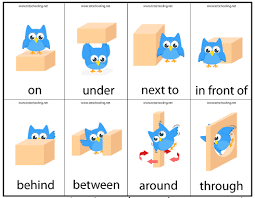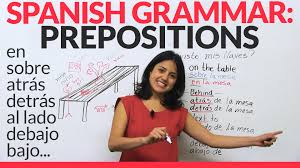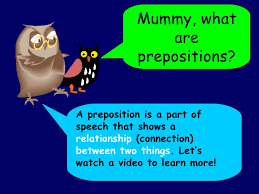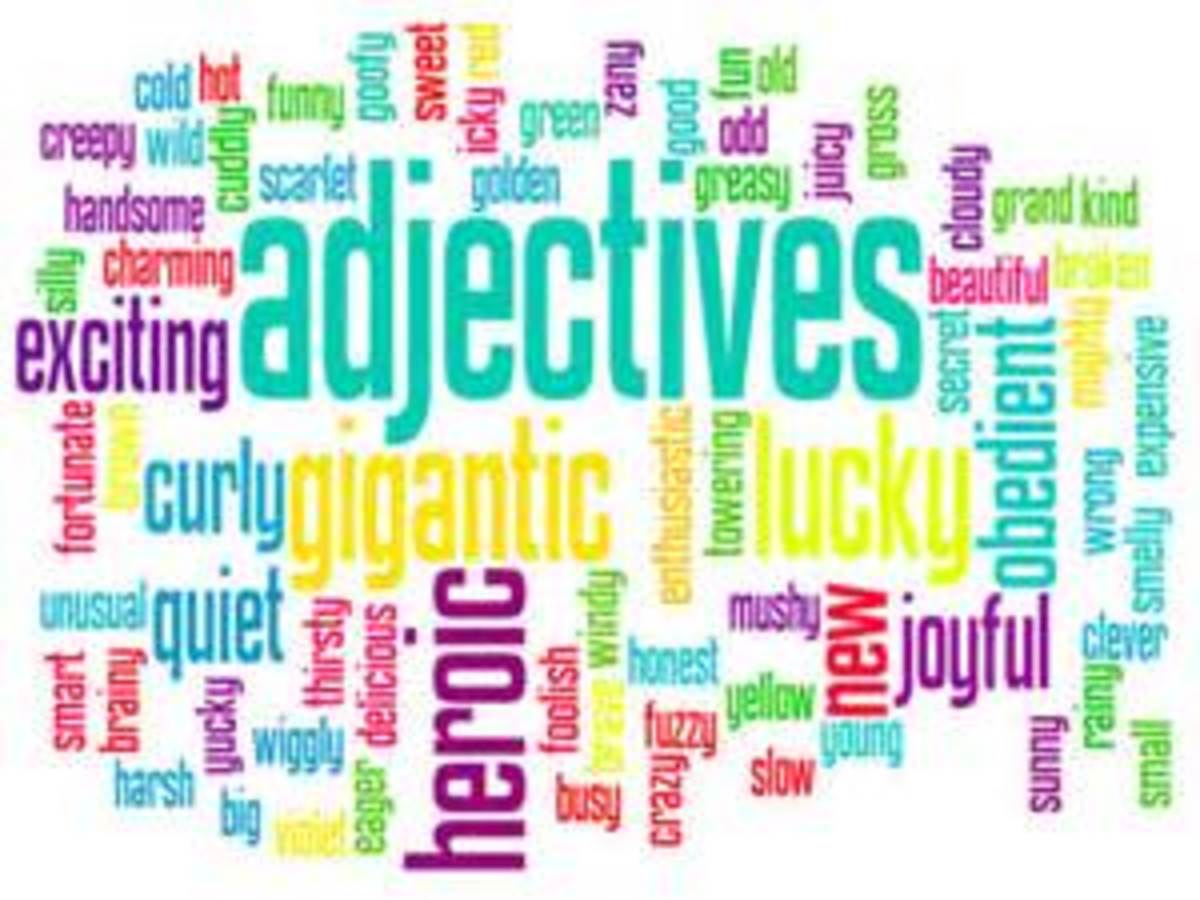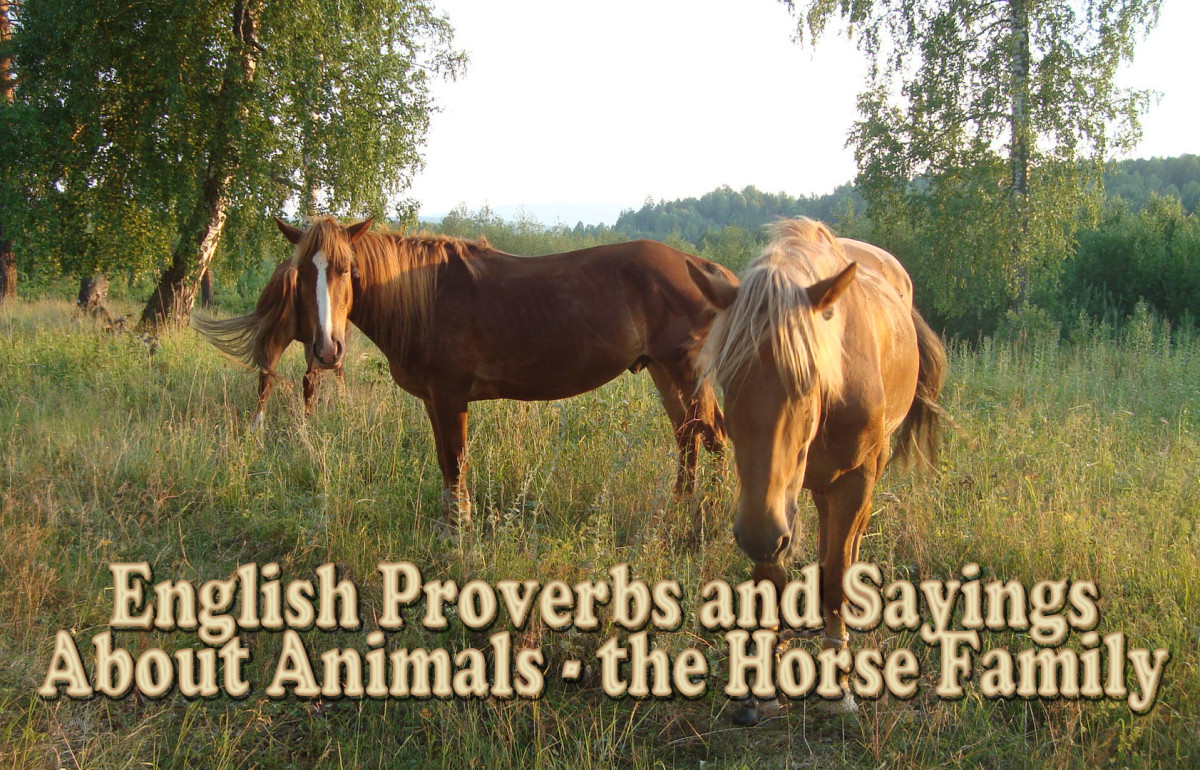Prepositions are the Glue Binding the English Language
We read and listen and eventually get the hang of'em..
Click thumbnail to view full-size


Often tiny, but we couldn't communicate effectively without them
Politics prompted me to attempt this draconian task of saying something meaningful about prepositions.
A Tory was heard saying on Sky New today, "Goodness knows what Jeremy Corbin (Labor leader) is going to do to Britain if he ever gets power." Note the use of the "to," used twice, a powerful preposition. "When we say "to do to something to someone" in English, it usually means they won't like it!
Later I heard a Labor follower say, "Goodness, Jeremy Corbyn will do a lot for the UK when he gets power." ("for" Corbyn will help England).
Note "for the country here," turns the first critical sentence all around, doesn't it?
What, then, is a preposition? I'll let the Cambridge Dictionary handle that for you. "In grammar, a word that is used before a noun, a noun phrase, or a pronoun, connecting it to another word."
It's our language, but we don't know it very well
If you ask the average English speaker how many prepositions there are in English, he will hum and haw..."Maybe 30?" And then recite a few of the easy 2 or 3-letter ones. He or she will then be amazed - as I still am and you will be - there are at least 150 and maybe more for the language historians who count all the long dead ones from the past.
So why do we expect so much from immigrants?
They are the bane of students from other lands trying to learn our cumbersome and complicated language, Many decide, "Heck, who needs 'em," and communicate quite efficiently without a preposition taxing their new-found ability, at least to a degree.
"I go shop" is as easily understood as "I go to the shop;" In fact, in these cases, we may well be better off without these stumbling blocks of learning.
Music and rhymes sometimes help
These are even "Preposition Songs" to help bewildered teachers and students. To the melody "Yankee Doodle Dandy!"
Verse 1
Aboard, about, above, across; against, along, around, (YankeeDoodle went to town, A-riding on a pony) etc.
Amid, among, after, at; except, for, during, down
Verse 2
Behind, below, beneath, beside; between, before, beyond
By, in, from, off, on, over; of, until, unto, upon
Verse 3
Under, underneath, since, up, like; near, past, throughout, through
With, within, without, instead; toward, inside, into, to
Others have been showcased like this to help, like the old "ABC" song."You all know this one, it has a unique melody.
Known for hundreds of years, the old ABC jingle
"Abcdefg-Hijklmnop (fast)-Qrst-u and v-wyx -and good ol' Z"
Real smarties at my schools could chant it backwards! Be my guest.
Sailors have a unique collection of salty prepositions!
There is a practically unknown army of archaic and/or poetic/dialectic preposition forms still hanging around in 2017. A few have been invented by, or seized upon by the old salts in our midst.
"Abeam and athwart" are well known to many who have ever boated or dreamed of doing so. And don't forget "abaft" "aloft," "aft," "about" (Go), and the lovely old piratic shout, "Avast!"("Me hearties!") to stop! (hauling, etc.), which this old navy rating will also heed, there are dozens more seaman's terms, some prepositions like the ones listed today.
And the lyrical set are also catered for
"Ere," a contraction of "ever" mostly, is beloved by potes. "Betwixt" stiil joins with Between, although just what the former means leaves me flummoxed. Armies and their ilk often "Go forth" to battle. (Prep of movement). "Unto" is a favorite of bible scribes, "Give unto Ceasar...etc." (practiced without mercy by our Tory government; Prep. of movement of something towards something or someone).
Some are so obscure, no one's familiar with them
"Nearhand, Outwith and Quoad" - don't have a clue, unless the last is a gay toad!
Some everyday chappies
According to the "English Club," some of the most used prepositions are the following:-
"of in to for with at from by about as into like through after"
Guarded by the erudite, it's "Hands off our established prepositions
No doubt that prepositions and all the other sounds that constitute English grammar are beloved of the academics, especially those who seem to have little else to do.
Some of these see themselves as the guardians of the English Language. I suggest you all read Mathew Daley's Blog (Google) to read his attack of the worthies who tell us what and what not to use of our own language. He makes a salient point that dictionaries are just the vade mecum of the language, and only a record of what language is used on the day...and many are well out of date, even online; perhaps especially online as technology adds a swarm of new terms constantly.
Writers should have a dictionary, as well as the internet
That said, any writer who is without a good, hard-back dictionary, as well as all the online offerings, at his hand is doing him or herself a disfavor. When you need the spelling or understanding of a word in a hurry, you can do it faster in a book and you don't need to keep shrinking or closing your article to go to Google (how do you think I knew all about "vade mecum"). No space on your computer table? Get a bigger one.
A great man of letters, even Churchill weighs-in
Remember you are not supposed to end a sentence with a preposition, a fact Churchill amusingly pointed out in the Commons one day long ago, “From now on, ending a sentence with a preposition is something up with which I will not put.” You gotta love that man.
Some Common Prepositional Phrases
(Prepositional phases, unsurprisingly, begin with a preposition)
At
At first, At least,At most,At times,At any rate,At last,At the latest, At once, At an advantage / disadvantage,At a profit / loss,At the cinema / at the theatre / at a party / at university
By
By accident,By far,By all means,By heart,By chance,By mistake,By the way,By the time,By no means,By name,By sight,By now,By car / bus / train / boat / plane / land / sea / air
For
For instance,For example,For sale,For a while,For the moment,For ages,For a change,For better or worse
In
In the end,In a skirt / shirt / coat / hat etc,In time
On
On time,On the radio,On page,On the phone,On TV
Under
Under no circumstances,Under the influence of,Under consideration,Under discussion,Under suspicion
So we all learned something today
So hope you enjoyed this little grammar lesson from one who hated grammar like the kiss from a Cobra!... Toodlepip

